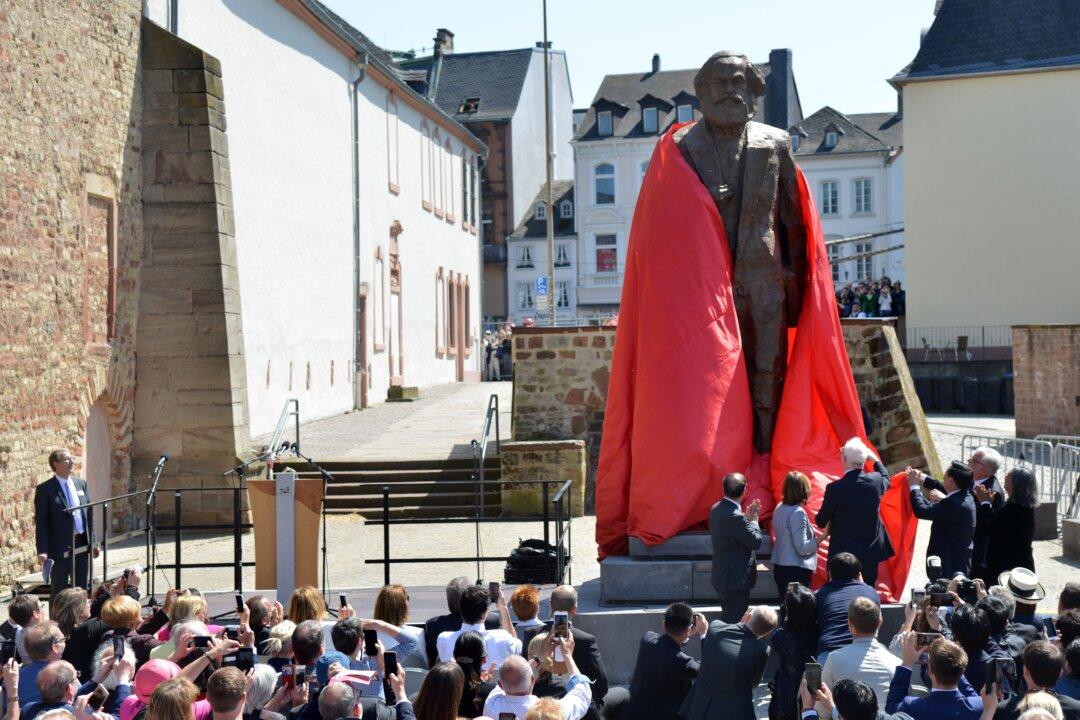European Commission President Jean-Claude Juncker showed up recently in Trier, the birthplace of Karl Marx, to pay tribute to his memory. This was followed by a series of exhibitions, including the unveiling of a gigantic statue of Marx, sponsored by the Chinese regime, to commemorate the 200th anniversary of the creator of modern communism.
To come from a country that experienced Marxism in practice—as I do, being from Slovakia—is to shudder over such fawning. What does it mean, or portend, when Juncker honors an architect of collectivist tyranny and oppression at a time when many democracies are struggling?
